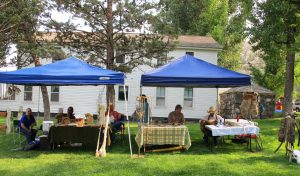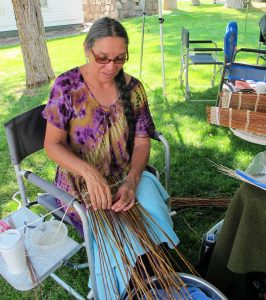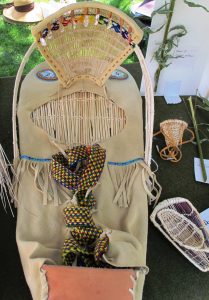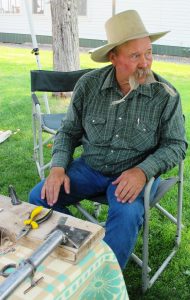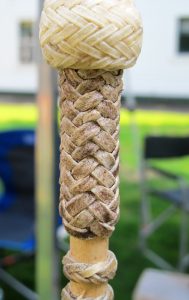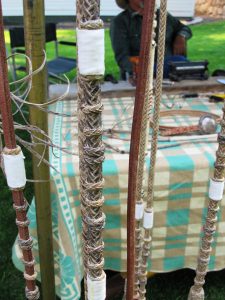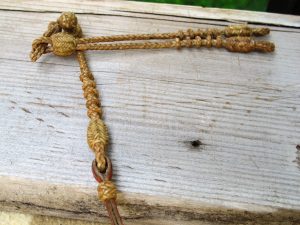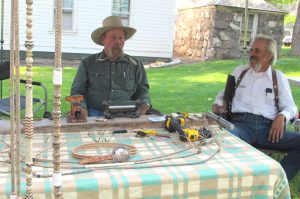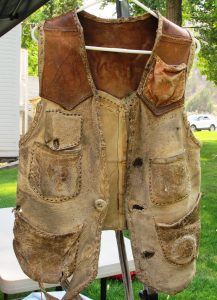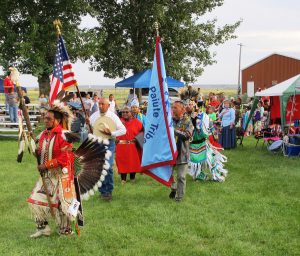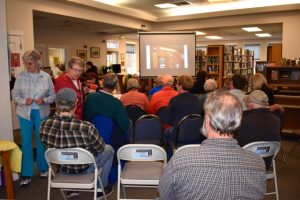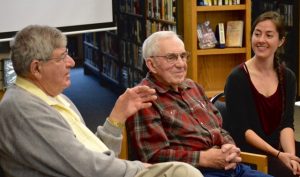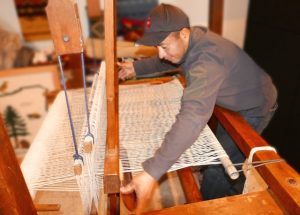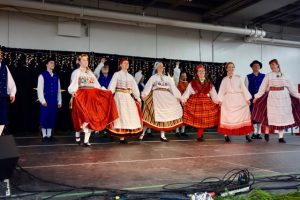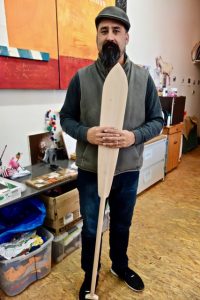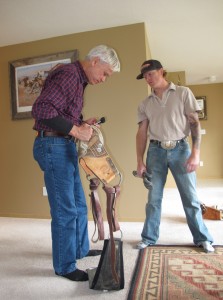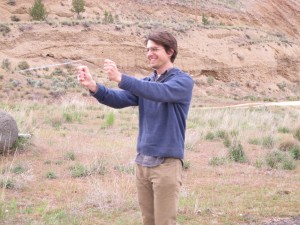Josh Chrysler
As the contract staff folklorist for the Four Rivers Cultural Center in Ontario, Oregon, I’ve been busy this summer developing public programs celebrating the traditional culture and folklife of eastern Oregon. Although very rural, expansive country, there is an incredible diversity of folklife in the region. Native American, Basque, European, Hispanic, and Japanese represent a few of the constant flow of people of varied ancestries who have relied on the four rivers that converge in the western Treasure Valley—the Snake, Malheur, Owyhee and Payette – for which the Four Rivers Cultural Center is named. Each of these cultural groups have contributed their own folklife to the culture of the region.

Kawa Taiko, traditional Japanese drumming group based in Ontario, performing in Baker City on August 6th, 2017
National Endowment for the Arts is funding the partnership between Four Rivers Cultural Center and the Oregon Folklife Network to hire a staff folklorist dedicated to supporting the folklife and traditional culture of eastern Oregon. Back in March, I traveled across the 8 easternmost Oregon Counties, holding listening sessions with County Cultural Coalitions, museums, arts centers, and Tribes, to learn what kind of programs people would like to see.
Based on those meetings, I developed four programs collaborating with different host organizations and traditional artists spread across eastern Oregon in Ontario (Malheur County), Pendleton (Umatilla County), Frenchglen (Harney County), and Baker City (Baker County). Highlights from these programs include a community conversation with James Dionne (Chippewa and Cree), a Native powwow dancer and sweat lodge leader in Ontario; demonstrations with various traditional artists like rawhide braider Dan Fowler, cradleboard and basket maker Sara Barton (Mono Lake Paiute and Yosemite Miwuk) during the Frenchglen Jamboree; a performance and conversation in Baker City with Ontario’s traditional Japanese drumming group, Kawa Taiko, and a community conversation with Native bead worker Margaret Johnson (Crow/Chippewa/Cheyenne, whose children are enrolled Umatilla) in Pendleton. Read a first-hand account of these programs in Riki Saltman’s article below.
 Sara Barton demonstrating willow preparation technique for use in a cradleboard in Frenchglen (Harney County), on August 5th, 2017.
Sara Barton demonstrating willow preparation technique for use in a cradleboard in Frenchglen (Harney County), on August 5th, 2017.
Next year, we plan to focus on buckaroo and ranching folklife, including functional traditional arts such as silversmithing, saddle making, twisting mecates, and more. Keep your eyes open for next year’s exhibit exploring these traditions, and an all-day celebration with demonstrations of traditional arts, alongside performances of cowboy poetry and music. Stay tuned for more information as this project develops!



